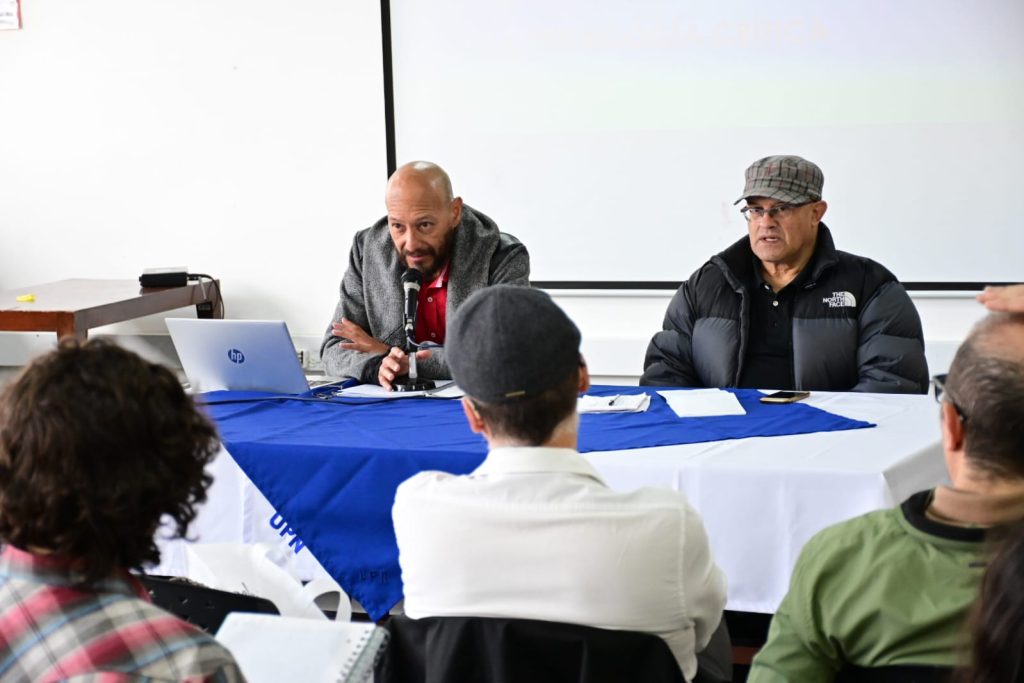The seminar began with the presentation of the speaker Germán Carvajal Ahumada, professor at the Higher School of Public Administration (ESAP), addressing a Heidegger’s letter on Posthumanism. This letter was a response to Juan Buffet, raising the matter: “How can we give meaning back to the word humanism?” This was the starting point to develop the entire text.
Germán explained that this question involves at least two concepts for humanism. On the one hand, the Enlightenment anthropocentrism and romanticism which represent the old meaning being, in some way, complicit in the catastrophic war. However, a new meaning with no links to the old liberal perspective was being sought.
On the other hand, some important points of Heidegger’s letter were highlighted. First, it was pointed out that in thinking, the being reaches language, since language is the house of being and human beings dwell in it. Second, there was a talk about the need of meditating and caring so that the human beings can be truly human and not inhumane, which is outside their essence. Finally, it was emphasized that thinking establishes the relation between being and human being essence.
The text also explored the notion of being, according to Heidegger, emphasizing that being is not limited to be any being, since technique deals with these ones and, if the human being were simply a being, the question posed about the being would not be answered. It was highlighted that those, who wait for understanding the being when manifesting in language, are still immersed in theology
Finally, there was a critique on the understanding of a being presented as God, and the idea of a being representing the decision itself, with a meaning linked to it was defended, while a critique on the preference of choosing one or other decision was also made. In addition, it was argued that those who love are the same who can work collaborating with others’ work, making possible a truly critical pedagogy.
